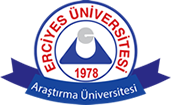After psychoanalytic, behavioral-cognitive and humanistic approaches, transpersonal psychology, considered as the fourth force of psychology, emphasizes that human has a transcendent nature by going beyond self-actualization. However, due to its transpersonal approach centered on the material paradigm and Cartesian philosophy, transpersonal psychology approach could not produce the expected level of effect in terms of an approach to the spiritual realm. Therefore, there has been a need for spirituality-centered approaches with a stronger background and today many approaches of psychology have emphasized the spirituality, albeit superficially. As in the case of narrative therapy, approaches of psychology based on the culture have begun to emerge. As a result of these approaches, it has been Far East and West-centered spirituality traditions whose backgrounds were mostly benefitted.
However, when we look at the history of Islam regarding psychology, vast array of works and practical experiences waiting to be discovered and interpreted within the framework of the psychology attract attention. In the process that started with Kindî, many important findings and experiences are encountered such as the studies of Belhî, known as the first Muslim psychiatrist, on anxiety, depression and obsessive compulsive disorder (OCD), findings of İbni Sina and Farabi about child and adolescent psychology, Muhasibi’s opinions and suggestions about educating the nafs, Gazali’s putting forward the theory of conditioned reflex centuries ago before Skinner, an important name of the Behavioral Psychology, Arabî’s pointing out to the concepts such as collective unconscious and archetype with the definition of Ayan al Sabita about eight hundred years ago before Jung, Mevlânâ’s stories and interpretations in the Masnavi going beyond the ages and psychology, medical and psychological findings of İbrahim Hakkı Erzurumî in Marifetnâme, Nasreddin Hoca’s use of defense mechanisms in his stories centuries ago before Freud, Abdürrezzak Kâşâni’s definitions and interpretations of modern psychology in the tafsir going beyond human imagination. In terms of understanding human and finding solutions to his/her problems, researching these and similar knowledge and practices is very important for modern psychology that has been cold to Islam and Muslim scientists for many years.
In this sense, the importance of spirituality in the field of psychology has been emphasized with the scientific book studies and the symposiums on “Spiritual Psychology” initiated under the leadership Erciyes University in 2014 and brought together many disciplines such as psychiatry, psychology, psychological counseling and guidance, social services, sociology, sufism, psychology of religion, sociology of religion. All these efforts have strengthened the idea of returning to a domestic understanding of psychology, which is rooted in our spiritual and traditional values, and have also encouraged the researchers who will study on this subject. The department of Spiritual Psychology was established within the Psychology Departments of Ankara Hacı Bayram Veli, Niğde, Bingöl, Mardin, Muş Alparslan and Burdur Mehmet Akif Ersoy Universities. Many universities are currently working on establishing a Department of Spiritual Psychology.
In addition, “Spiritual Counselling and Guidance”, which was also accepted as a professional standard in 2019, started to be taught at the Psychological Counselling and Guidance Programs in the Faculties of Education, and the Directorate of Religious Affairs assigned “spiritual counsellors” to the institutions such as offices of muftis in provinces and districts, dormitories, hospitals and prisons. “Spiritual Counselling and Guidance Master’s Degree Programs” were opened at Medeniyet, Sakarya, Kütahya Dumlupınar, Karamanoğlu Mehmet Bey, Bingöl, Alparslan, Ankara Sosyal Bilimler, Uludağ, 19 Mayıs, Ankara, Kâtip Çelebi, 29 Mayıs and Sabahattin Zaim Universities.
Dr. Mustafa ATAK





Current Announcement and News Not Found.